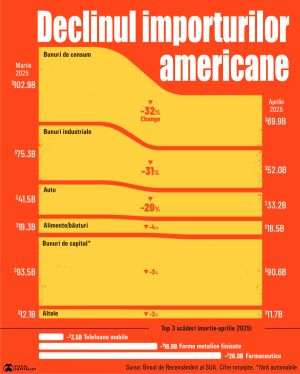According to the contract for the privatization of Electrica Muntenia Sud, Enel is required to grant the Romanian government the right of first refusal when it comes to buying back its stake in the aforementioned company, which the Italian group has put up for sale at the end of last week.
Sources close to the situation told us: "The privatization contract clearly stipulates this right of first refusal of the government, as significant minority shareholder, if Enel wants to sell the majority stake in the Muntenia Sud, former division of Electrica SA. Now, the company that Enel is talking to in this particular case is SAPE, the company spun off from Electrica SA prior to its recent IPO, which is fully owned by the government and which was created for the purpose of managing its minority holdings of the government in the privatized branches of Electrica".
According to the quoted sources, the Romanian authorities have not yet received an offer from Enel for the companies that the Italian group owns, which were created following the restructuring of the former Electrica Muntenia Sud, but they are seriously considering the possibility of resuming control of the distribution and supplying of electricity in the Muntenia Sud area.
Our sources are saying: "Again according to the privatization contract concluded in 2007, Enel is required to buy the minority stake of the state in Electrica Muntenia Sud, according to a well-established and clear formula. Thus, some time ago, the state asked for 521 million Euros for its minority stakes in the Enel companies created as a result of the reorganization of the branch of Muntenia Sud, but the deal with the Italians wasn't concluded because there were disagreements over the formula for determining the amount of the payment arose.
Now, the government can negotiate acquiring control of the companies owned by Enel in the Muntenia Sud area for an attractive amount: it will negotiate an acquisition price for the majority stakes of Enel, of which it will subtract the amount of 521 million Euros owed by the Italian group for the minority stakes. There is also the option of the government using the < tag along > right, stipulated in the privatization contract. The Romanian authorities have the right to sell their minority stakes to the third-party that will acquire the stake of Enel, at the same price as Enel. The Proprietatea Fund, which is the other minority shareholder in the Enel Muntenia Sud companies can also use the < tag along > right".
The management of Italian group Enel decided, at the end of last week, to start selling its assets in Slovakia and Romania. According to a press release by the group, the assets to be sold involve a 66% stake in Slovenske Elektrarne of Slovakia; 64.4% in Enel Distribuţie Muntenia SA and Enel Energie Muntenia SA; 51% in Enel Distribuţie Banat SA, Enel Distribuţie Dobrogea SA and Enel Energie SA; and 100% of Enel România SRL.
The Romanian assets comprise companies that manage a grid of 91,000 kilometers which distributes approximately 14 TWh per year (with a market share of 34%) and which sell approximately 9TWh/year to a number of approximately 2.6 million customers, of which 2.4 million residential customers (approximately 20% of the retail market) and 200,000 companies.
In 2013, these companies had revenues of 1.118 billion Euros and have generated an operating profit of 289 million Euros.
The sale of the assets in Slovakia and Romania is part of a larger, 6-billion program of asset divestment started in 2013 which is intended to help Enel reduce its debt. The assets in Slovakia and Romania, together with other non-strategic assets, will raise over 4.4 billion Euros (approximately 6 billion dollars), the company announced in a press release.
Sources from the energy market told us it would be hard for Enel to sell its assets in Romania, not because they are not attractive, but because the major utilities groups in Europe are lacking cash themselves and are trying to get it by selling off assets as well: "They stand a better chance of reaching an agreement with the Romanian government for Electrica Muntenia Sud, or with companies from Russia or China, where Enel has longstanding business relations and where it has powerful branches which it has invested billions of dollars in. Russian and Chinese companies are the only ones that currently have financial strength. It is not out of the question that RWE or EDF would review the offer of Enel in Romania. Enel is selling these assets because it has expanded heavily all over the world and it has accrued heavy debts. It now seems that the investments of the group are heavily being shifted to countries in South America, where it is building many renewable energy production units".
The quoted sources claim that it is possible that the contractual obligations to make investments in the privatized branches of Electrica may weigh down on the price offered, as will the scandal of the privatization of Electrica Muntenia Sud, which resulted in indictments and convictions for corruption and espionage, as well as the recent investigation by the National Anti-Corruption Department involving the vice-president of the ANRE, Claudiu Dumbrăveanu, and an executive of Enel, Florin Gugu.
Starting in 2004, Italian group Enel acquired, under the Romanian privatization process, the Banat, Dobrogea and Muntenia Sud branches of Electrica SA. In the Dobrogea branch, Enel bought from the Romanian state 24.62% of the shares for a total of 13,612,390 Euros. A capital increase was later performed, for a total subscription price of 29,771,520 Euros. This resulted in a stake of 59.62% for Enel.
The Banat branch of Electrica SA was acquired following a similar system: Enel paid 21,660,314 Euros for 24.62% of the shares, and then a capital increase was performed for a total subscription price of 47,373,054 Euros. This resulted in a stake of 59.62% of the Italian group in this branch.
In Muntenia Sud, Enel bought 50% of the shares for a total of 394,862,725.44 Euros, and then performed a capital increase of 425,236,755.84 Euros. The stake of Enel thus climbed to 67.5%.
• The shareholder structure of the Enel group
Listed on the Milan Stock Exchange starting in 1999, the Enel group has the largest number of shareholders among Italian companies, with 1.2 million retail and institutional investors. The most important shareholder is the Italian state through the Ministry of the Economy and Finance, which holds 31.24% of the shares. 14 more companies in the group are listed on the stock exchanges of Italy, Spain, Russia, Argentina, Brazil, Chile and Peru. In Romania rumors are going around that the Italian state may decide to reduce its stake in Enel soon.
In Italy, Enel is the largest electricity producer, in Spain, the group holds 92.06% of Endesa, the main energy company of Spain and Portugal, and in Russia, Enel is present through Enel OGK-5 and RusEnergoSbyt, in which it has a stake of 49.5%.
In Latin America, through Endesa and its five subsidiaries in five countries, Enel is the biggest private energy group, with 17 GW installed capacity in thermoelectric, hydroelectric and renewable energy units, serving 14.5 million customers. In North America the Italian group holds 1.6 GW installed power in hydroelectric, geothermal, wind, solar and biomass energy generation units.










































